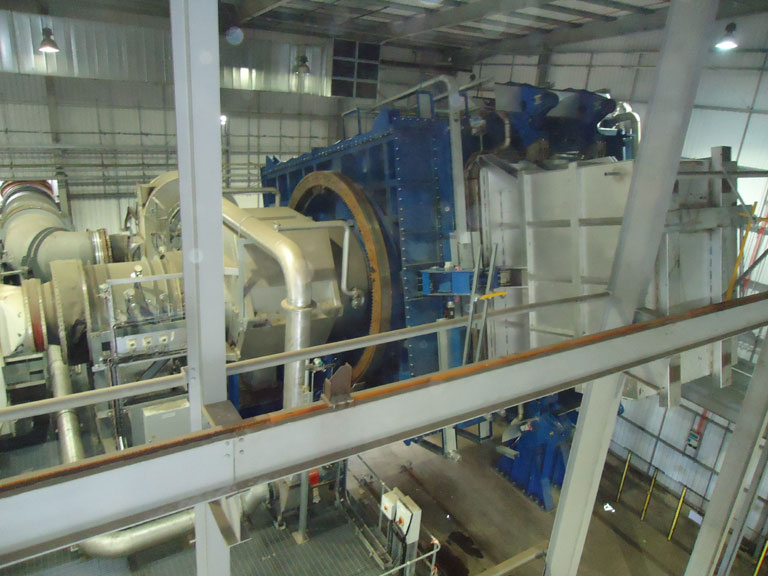When a vehicle reaches the end of its life it must be disposed of in an environmentally responsible way through an Authorised Treatment Facility (ATF). Through the End of Life Vehicles (ELVs) Directive, vehicle manufacturers (VMs) have an obligation to provide free take-back for cars and light commercial vehicles.
VMs have partnered with companies such as Autogreen and Cartakeback that will not only collect vehicles that have reached the end of their usable life and issue the necessary Certificate of Destruction (CoD), but in some cases will pay the last owner for the vehicle. The vehicle can then be disposed of and parts re-used, recycled or used for energy recovery.
From 2015 the industry must ensure that 95% (up from 85% previously) of the vehicle by weight is re-used, recycled or recovered. The sector has been achieving the previous target but the new tougher limits have required considerable investment from both the VMs and the recycling industry in new processes.

Pyrolysis Plant- Oldbury
The Innovative Environment Solutions site at Oldbury has new processes to recover more materials from the ELVs, then uses a pyrolysis plant to turn the residual into electricity. The 40MW facility will divert over 500,000 tonnes of waste from landfill.
The Shredder Waste Advanced Processing Plant (SWAPP) in Manchester is also delivering enhanced separation of the constituents of a vehicle, to enable better recycling and energy streams.
With the arrival of innovative new materials and powertrains, including lithium-ion batteries, the sector is developing processes to ensure the effective re-use, recycling and recovery of future vehicles and their components.
Industry is also developing alternative uses – second life opportunities – for new battery types, including for energy storage for projects outside the auto sector, eg storing electricity from solar panels in the home.
SMMT, on behalf of the industry, made an agreement with Autogreen to provide ELV producer responsibility for orphan vehicles – those brands that are no longer commercially active. This means the entire car and LCV parc is covered by the ELV Directive and consumers can easily dispose of their vehicles in a no-cost, safe and environmentally friendly manner.








